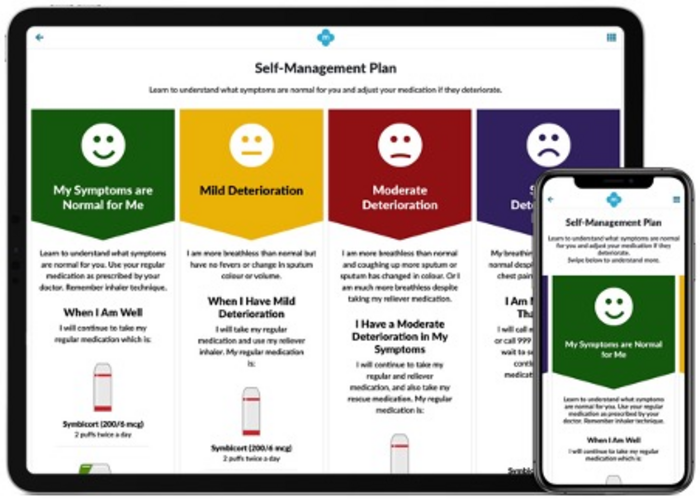New Covid app can detect virus from people’s voices ‘more accurately than lateral flow test’
Technology could be used in low-income countries where PCR tests are expensive

Scientists are developing a mobile phone app that “accurately” detects Covid-19 infections by analysing a person’s voice using artificial intelligence (AI).
The yet-to-be peer-reviewed research for the app, to be presented on Monday at the European Respiratory Society International Congress in Barcelona, reportedly found that the AI model was accurate 89 per cent of the time, compared to lateral flow tests used for diagnosis whose accuracy varied depending on the brand.
Researchers, including those from Maastricht University in the Netherlands, said the app can be used in low-income countries where PCR tests are expensive.
“These promising results suggest that simple voice recordings and fine-tuned AI algorithms can potentially achieve high precision in determining which patients have Covid-19 infection,” she said.
Scientists said the app can enable remote, virtual testing with a turnaround time of “less than a minute”.
“They could be used, for example, at the entry points for large gatherings, enabling rapid screening of the population,” Wafaa Aljbawi, a researcher at the Institute of Data Science, Maastricht University, said in a statement.
Since Covid affects the upper respiratory tract and vocal cords, it leads to changes in a person’s voice, researchers pointed out.
In the new study, they investigated if it was possible to use AI to analyse voices in order to detect the disease.
Scientists assessed a database containing 893 audio samples from 4,352 healthy and non-healthy participants, 308 of whom had tested positive for Covid.
Once installed on the user’s mobile phone, participants recorded basic information about their demographics, medical history and smoking status.
They were then asked to record some respiratory sounds by coughing three times, breathing deeply through their mouth three to five times and reading a short sentence on the screen three times.
Scientists also used a voice analysis technique called Mel-spectrogram analysis that identifies different voice features like loudness, power and variation over time to break down the many properties of the participants’ voices.
Researchers built different AI models and evaluated which one worked best at classifying Covid cases.
They reported that the model called Long-Short Term Memory (LSTM) out-performed the others with an overall accuracy of 89 per cent.

“The lateral flow test has a sensitivity of only 56 per cent, but a higher specificity rate of 99.5 per cent. This is important as it signifies that the lateral flow test is misclassifying infected people as Covid-19 negative more often than our test,” Ms Aljbawi said.
“In other words, with the AI LSTM model, we could miss 11 out 100 cases who would go on to spread the infection, while the lateral flow test would miss 44 out of 100 cases,” she added.
Scientists, however, warned their results need to be validated with large numbers of participants.
Citing one of the limitations of the research, they said only patients currently highly engaged with the app – using it daily or weekly – can provide the quantity of data needed for the AI modelling.
“Further study is required into patient engagement to determine what level of accuracy is acceptable and how an exacerbation alert system would work in practice. The introduction of sensing technologies may further enhance monitoring and improve the predictive performance of models,” said James Dodd, project lead from the University of Bristol in the UK.






Join our commenting forum
Join thought-provoking conversations, follow other Independent readers and see their replies
Comments